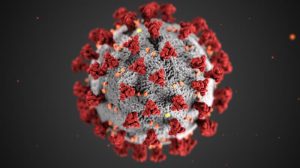 Navigating the information landscape of the pandemic has been uniquely challenging for everyone. No matter your expertise or background, at some point, we have all struggled to process, access, or communicate all of the rapidly evolving research and information that has been circulating these past few months. Which is why it is more important than ever that all of us take responsibility for the way we research, share, and learn from COVID information. The best way to empower your quest for COVID-19 information is to research it for yourself, using reliable sources for information and to periodically (but not constantly) check in on your understanding of current knowledge. In this post, we provide a brief overview of guidelines to utilize as you navigate COVID-19 information. Stay tuned in the coming weeks as we discuss more about how you can be consumers and communicators of reliable information.
Navigating the information landscape of the pandemic has been uniquely challenging for everyone. No matter your expertise or background, at some point, we have all struggled to process, access, or communicate all of the rapidly evolving research and information that has been circulating these past few months. Which is why it is more important than ever that all of us take responsibility for the way we research, share, and learn from COVID information. The best way to empower your quest for COVID-19 information is to research it for yourself, using reliable sources for information and to periodically (but not constantly) check in on your understanding of current knowledge. In this post, we provide a brief overview of guidelines to utilize as you navigate COVID-19 information. Stay tuned in the coming weeks as we discuss more about how you can be consumers and communicators of reliable information.
Develop social media skepticism
Social media and news media are some of the most convenient and common avenues for accessing information on health and science, but also often the most unreliable. Many of us are aware of these issues, especially in light of COVID-19 (remember corona beer?). Unfortunately, because of the popularity in sharing and learning this way, it can be difficult to avoid using these sources. Yet consuming health/science information, especially on social media, without critically analyzing it can foster the spread of misinformation, which can have severe consequences and lead to significant harm on the health of our communities. Even through passive scrolling it can be difficult to avoid subconsciously biasing ourselves. Ultimately, the only way to tackle the spiral of misinformation is to retrain our brains, reevaluate our social habits, and revamp our approach to using social media.
How exactly to do this requires a much longer conversation, but generally speaking: remain skeptical, analyze the source, and ignore information you don’t have time to evaluate. Even an innocent click on a COVID-19 “fake news” article can increase its revenue and perpetuate its power.
Find reliable sources of information (Hint: Libraries!)
As part of the Rutgers community, you have access to an enormous amount of information through our Libraries. One way to ensure you are getting reliable information is to skip social media altogether and use the Libraries to create your own collection of reliable sources.
Here are three resources to help you collect reliable information on COVID-19.
Resource #1:
The SIFT Method: Stop, Investigate the Source, Find better coverage, Trace claims, quotes, and media to the original context.
The SIFT method was devised by Mike Caulfield, a digital information literacy expert working at Washington State University. While the SIFT method is useful for navigating any information environment, the resource linked here specifically addresses the difficulties of finding reliable information on COVID-19.
Resource #2:
Rutgers’ COVID-19 Information Resource Guide
This resource guide was created by health science librarians at Rutgers University who are experts in the intersection of public health and information seeking. The guide is a curated collection of reliable resources offering information on COVID-19 (including federal agencies and expert public health researchers). Through it you can find resources on tracking the spread of the virus, webinars at Rutgers, information on clinical trials, and much more.
Resource #3:
Why the Coronavirus is so Confusing
“Why the Coronavirus is so Confusing” was published by the Atlantic on April 4th, 2020, and was written by Ed Yong, one of the most well respected and experienced writers in the field of science communication. In this article he talks about the many obstacles we have faced in navigating the research and information side of COVID, and guides us through what we do and don’t know so far.
Recognize information is evolving
We are facing unprecedented challenges in managing our information intake. The culmination of a brand-new virus, a pandemic on a scale unfamiliar to most in our time, and the rise of social media and fake news creates a plethora of unique challenges. As such, it is important to remember that the scientific method is traditionally a slow process that often plays out over many years. Scientists are working tirelessly to rise to the challenge to do everything they can to get us more information on the virus, the disease, and how we should be trying to keep ourselves safe. While we are learning more every day and consensus on certain topics is solidifying, there are an infinite number of questions that have yet to be answered. Sometimes, knowing what we don’t know is just as important for making decisions as knowing what we do know. Pay attention to the way scientists talk about gaps in our understanding, shortfalls in studies, or skepticism in outcomes. Most of the time scientists communicate the confidence level or nuance in a certain result, study, or recommendation, we just have to be listening.